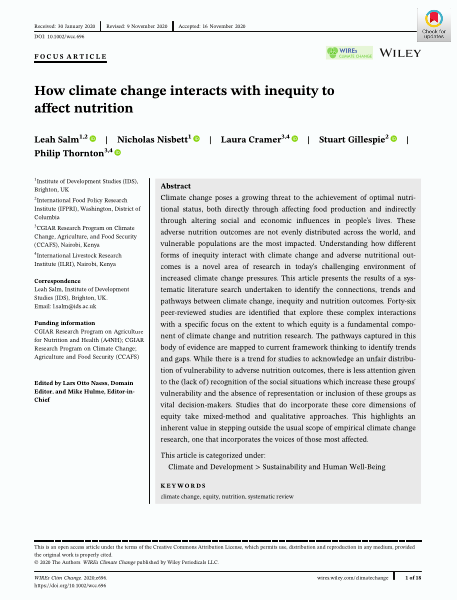How climate change interacts with inequity to affect nutrition
Abstract
Climate change poses a growing threat to the achievement of optimal nutritional status, both directly through affecting food production and indirectly through altering social and economic influences in people's lives. These adverse nutrition outcomes are not evenly distributed across the world, and vulnerable populations are the most impacted. Understanding how different forms of inequity interact with climate change and adverse nutritional outcomes is a novel area of research in today's challenging environment of increased climate change pressures. This article presents the results of a systematic literature search undertaken to identify the connections, trends and pathways between climate change, inequity and nutrition outcomes. Forty‐six peer‐reviewed studies are identified that explore these complex interactions with a specific focus on the extent to which equity is a fundamental component of climate change and nutrition research. The pathways captured in this body of evidence are mapped to current framework thinking to identify trends and gaps. While there is a trend for studies to acknowledge an unfair distribution of vulnerability to adverse nutrition outcomes, there is less attention given to the (lack of) recognition of the social situations which increase these groups' vulnerability and the absence of representation or inclusion of these groups as vital decision‐makers. Studies that do incorporate these core dimensions of equity take mixed‐method and qualitative approaches. This highlights an inherent value in stepping outside the usual scope of empirical climate change research, one that incorporates the voices of those most affected.

